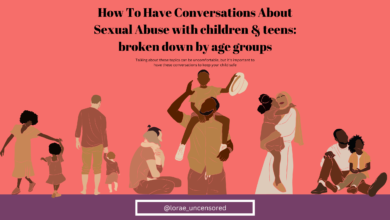
Good education is always built upon a good foundation.
In order to lay down the groundwork for understanding, almost every essential subject is taught in its most basic form beginning in Primary school or earlier. No one would walk into a preschool classroom during math time and expect to see the kids doing algebra. Nor would we walk into a primary classroom during Woodshop class and expect to see children wielding a chainsaw.

As a society we understand that topics have a scale of age-based appropriateness that we adhere to when educating children, but once that topic becomes Sex & Relationships we let conditioned fear and shame cloud our responsibility to prepare our kids for reality.
Many of us were not afforded the opportunity to receive comprehensive sex education in our childhood and adolesence and as a result we might lack the imagination to fathom age-appropriate sex ed for kids.
However, using a variety of teaching methods from hula hoops & games to role-play & art, here’s what the topic breakdown can look like by age group:
Kindergarten: Bodily Autonomy, Proper names for body parts, Personal boundaries & safety, Families & Diversity, Understanding Feelings
Early Primary: Consent, Bodily Functions & Hygiene, Healthy Relationships with Family & Friends, Defining Bullying, Respecting Differences
Late Primary: Counteracting Bullying & Harassment, Intro to Human Reproduction, Identifying Trusted adults, Online Safety
Middle School: Deeper Dive into Consent, Puberty, Details of Reproduction, STIs & Contraceptives, Gender expression/stereotypes
“The major finding of the research is that comprehensive sex education scaffolded across grades, embedded in supportive school environments and across subject areas, can improve sexual, social and emotional health, as well as academic outcomes for young people,” says Eva Goldfarb, a researcher at Montclair State University in New Jersey who co-authored a decades-long study on the topic.

Comprehensive Sex Ed can and should be taught at each age level to lay a good foundation for sexually responsible and healthy adulthood in the future.
To ask Kevina questions about the article or to find out more about her work, visit her Linktree.






